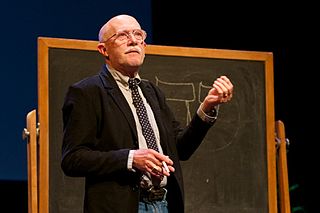A Quote by Gilbert K. Chesterton
Indeed the Book of Job avowedly only answers mystery with mystery. Job is comforted with riddles; but he is comforted. Herein is indeed a type, in the sense of a prophecy, of things speaking with authority. For when he who doubts can only say, ‘I do not understand,’ it is true that he who knows can only reply or repeat ‘You do not understand.’ And under that rebuke there is always a sudden hope in the heart; and the sense of something that would be worth understanding.
Related Quotes
I believe there is something of the divine mystery in everything that exists. We can see it sparkle in a sunflower or a poppy. We sense more of the unfathomable mystery in a butterfly that flutters from a twig--or in a goldfish swimming in a bowl. But we are closest to God in our own soul. Only there can we become one with the greatest mystery of life. In truth, at very rare moments we can experience that we ourselves are that divine mystery.
There is a saying that to understand is to forgive, but that is an error, so Papa used to say. You must forgive in order to understand. Until you forgive, you defend yourself against the possibility of understanding. ... If you forgive, he would say, you may indeed still not understand, but you will be ready to understand, and that is the posture of grace.
I would then say that there are two kinds of feeling. The first is to feel in the sense of concentrating your emotions on something immediately available for your understanding: you make your understanding out of the emotions you have about it. The second is to feel in the sense of being affected without trying to understand: something is felt, you do not know what, and it is more important to feel it than to try to understand it, since once you try to understand it you no longer feel it.
It is the duty of the human understanding to understand that there are things which it cannot understand, and what those things are. Human understanding has vulgarly occupied itself with nothing but understanding, but if it would only take the trouble to understand itself at the same time it would simply have to posit the paradox.
So for the question I go to the mystery of it and say I don't know. I only know that I am alive and there is something that manifests in my life, that it is God and one day I am going to understand my life, probably in the day that I die, or afterwards. But I try to find good questions and not good answers.
Awe is an intuition for the dignity of all things, a realization that things not only are what they are but also stand, however remotely, for something supreme. Awe is a sense for transcendence, for the reference everywhere to mystery beyond all things. It enables us to perceive in the world intimations of the divine. ... to sense the ultimate in the common and the simple: to feel in the rush of the passing the stillness of the eternal. What we cannot comprehend by analysis, we become aware of in awe.






































